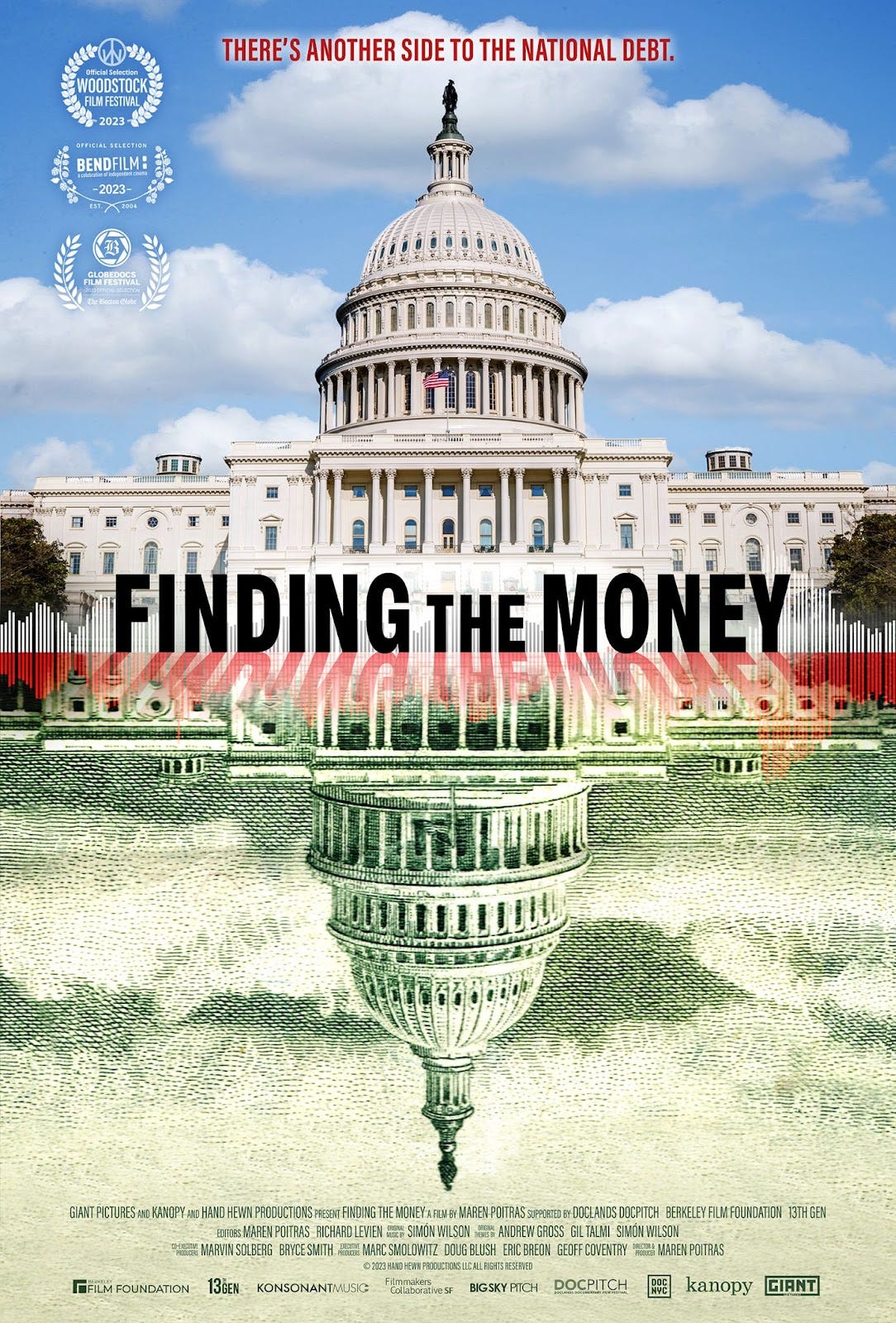‘Finding the Money’ is Modern Monetary Theory: The Movie
A once-obscure alternative economic theory gets its moment at the movies. While Professor Stephanie Kelton is a compelling presence, her book laid out the argument better than the film does.
Modern monetary theory (MMT) was, until relatively recently, an obscure set of economic ideas, with the belief that the way most people think about economics — from mainstream economists to every U.S. president since Ronald Reagan — was wrong. The New York Times has called it “the buzziest economic idea in decades.”
The argument is that to approach the federal budget, deficit, and fiscal picture in the way one would approach the finances of their household or a business is wrong for a simple reason: The U.S. government can and does print its own money.
Therefore, the theory goes that our government is not “broke,” nor is the ever-rising budget deficit and national debt worth worrying about. Plus, all sorts of regularly stated economic assumptions by politicians from both parties are also wrong.
No, we’re not “passing debt on to our children and grandchildren.” No, we are not “borrowing money from China.” No, a day will not come when “the bill comes due.” No, taxes are not the primary source of government funds. And yes, we can “find the money” for just about anything- whether it’s a war or COVID emergency relief. So, theoretically, we should be able to fund universal health care and climate change mitigation as well.
I am not an economist or an expert on macroeconomics, so I cannot definitively determine whether Team MMT has it right. But I remember being blown away a couple of years ago when I read “The Deficit Myth,” the 2020 book by Stephanie Kelton, the Stony Brook University professor who has emerged as the primary public face of the modern monetary theory movement.
Now comes a new documentary, Finding the Money, which tells the story of MMT while making the case for it. The doc features Kelton and other economists and experts who helped drive the theory to prominence. Kelton emerges as a compelling on-camera presence. However, the documentary, directed by Maren Poitras, doesn’t lay out the case for MMT quite as convincingly as Kelton’s book did.
The film lands on major VOD channels on Friday.
(A couple of crucial things to know: Stephanie Kelton did not singularly invent MMT, which is primarily a synthesis of ideas from early in the 20th century, although she was part of a coterie of economists — which emerged during the heyday of the blogosphere — that popularized it. And while Kelton briefly worked as a staffer on the Senate Budget Committee and later for Bernie Sanders’ 2016 presidential campaign, MMT has never been fully implemented by the federal government, nor has it ever been the official policy of the Biden Administration, although some have argued otherwise.)
Indeed, it’s clear that none of the recent presidents are believers in the theory. We see multiple montages of presidents, from Reagan to Obama, talking about out-of-control deficits, passing debt on to future generations, and how, because households are tightening their belts, the government must do the same. Sure, right-wing economists are skeptics of MMT, but then so does Paul Krugman, while the likes of Larry Summers describe MMT as a left-wing answer to Reaganomics.
The documentary does not mention then-Vice President Dick Cheney’s quote that “deficits don’t matter.” However, Cheney, much as we may remember otherwise, gave that as a quote in a book and never said it on camera.
Most of the talking heads are Kelton and the other MMT economists. However, Jared Bernstein, currently the chair of President Biden’s Council of Economic Advisers, is interviewed and has an on-camera brain fart where he appears not to be able to explain how monetary policy works.
The economists all say that pushing for MMT is terrible for one’s career if they’re an economist, although that’s certainly not been the case for Kelton.
My only beef with the documentary is that Kelton’s book burst with insights about how things work, many of which didn’t make it into the film. For instance, the book has a long description of how pay-fors work, to get bills in Congress a positive CBO score.
MMT seems to be a fairly left-wing theory, although I never got the impression from Kelton’s book that she was arguing for pure socialism. The film, though, goes further in that direction.
The film spends much time discussing climate change and recommends spending trillions of dollars to address that, partly through the proposed Green New Deal. It misses, however, that both sides somewhat lied about that proposal. Introduced when Trump was still president, it was a messaging bill not meant for enactment. Also, Republicans have pretended that Biden-era climate measures ARE the Green New Deal, which they are not.
If you’re new to MMT, you probably ask, “What about inflation”? After all, there’s been a pretty big development since the publication of Kelton’s book four years ago: The COVID moment led to a sudden massive increase in federal spending under both Trump and Biden, and inflation followed that. Kelton has argued that the economy remaining strong in recent years, despite inflation, has vindicated her ideas.
The film is also light on solutions for how MMT could be implemented by the government, whether there would ever be votes for it in Congress, and what would happen if an anti-MMT administration subsequently came to power.
Still, MMT is a fascinating set of ideas that’s very much worthy of a documentary.





Not sure what you're saying the left lied about?
https://www.levyinstitute.org/publications/how-to-pay-for-the-green-new-deal/